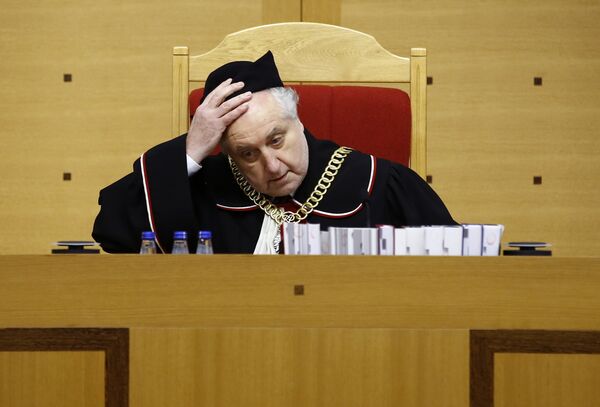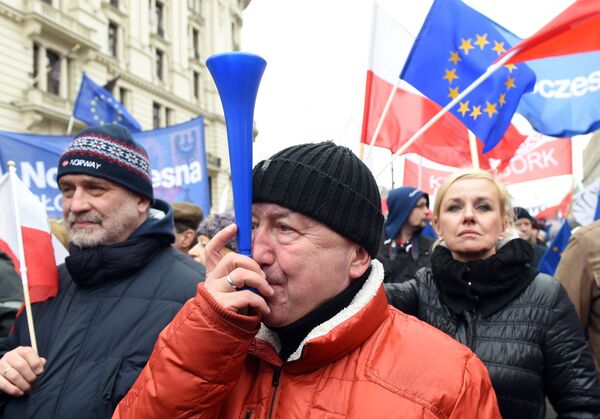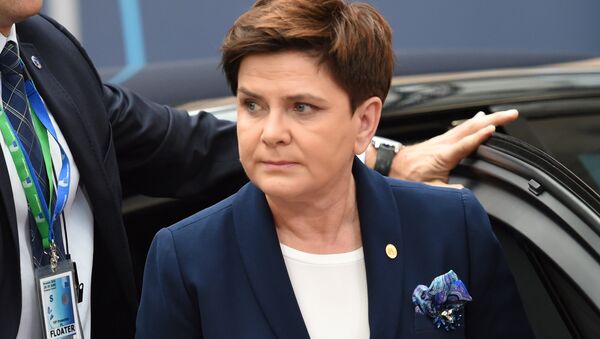The amendment meant that the tribunal would need a two-thirds majority to take a decision on constitutional matters instead of a simple majority. The minimum number of judges needed to make a decision was also raised from nine to 13, making it more difficult to convene a quorum.
Chief Justice Andrzej Rzeplinski ruled that many sections of the law passed in December 2015 were "non-compliant with the Polish Constitution."
"[The law] prevents the honest and proper functioning of the… Constitutional Court, by interfering in its independence and separation from other powers, thus violating the principles of the rule of law."

However, the government in Warsaw said it would ignore the ruling, refusing to publish it. Under the Polish constitution a ruling does not become final until officially published.
Sanction Warning
The European Commission has warned Warsaw that — unless it reverses its decision and implements the Rzeplinski ruling — it will lose its voting rights in the EU — the first time such a sanction has been applied to a member state.

Commission Vice President Timmermans told a breakfast seminar in Warsaw:
"Defense of the independence of the judicial system is the patriotic duty of every citizen of the European Union and the European Commission will support any such action. That is not meddling in the internal affairs of a country. I hope that Poland will not be turned away from the future and from the European Union."
Meanwhile, Poland is also at odds with Brussels over the controversial plan to relocate refugees from Greece and Italy under a quota system. Poland is supporting both Hungary and Slovakia, who are making a legal challenge against the plan at the European Court of Justice. The standoff is a further example of the growing gulf between Brussels and member states.



